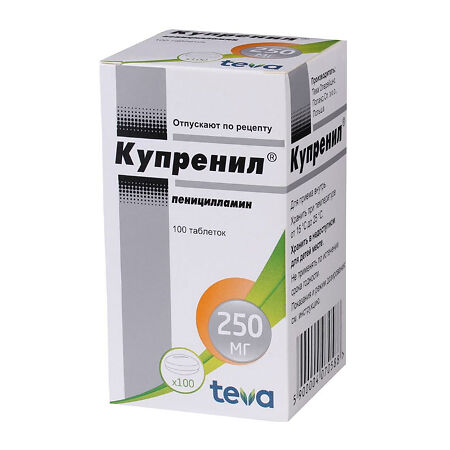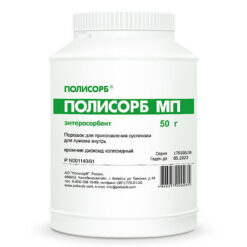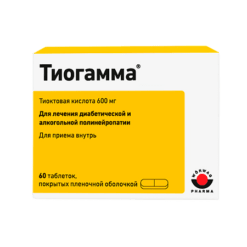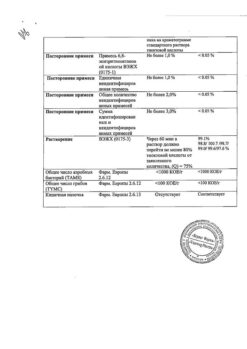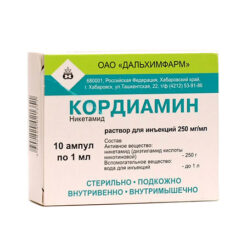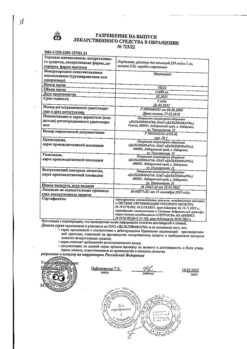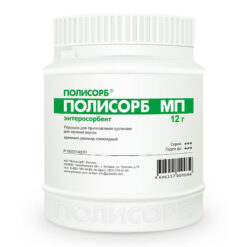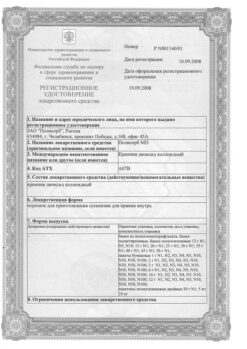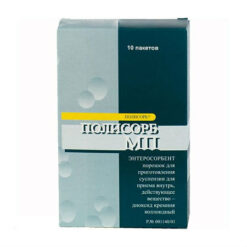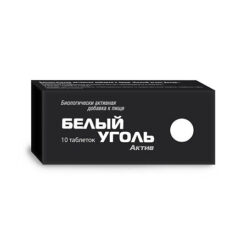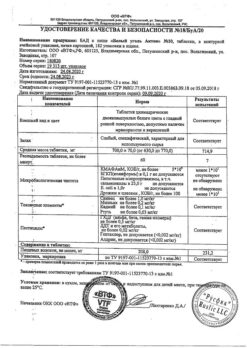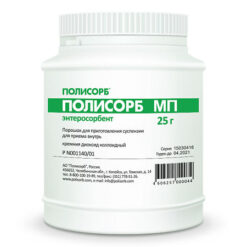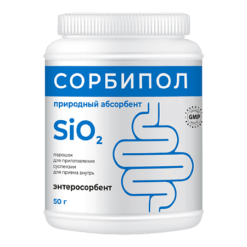No products in the cart.
Cuprenil, 250 mg 100 pcs
€1.00
Out of stock
(E-mail when Stock is available)
Description
Cuprenyl has complexing, immunosuppressive, inhibits the synthesis of collagen.
It forms chelate complexes with ions of copper, mercury, lead, iron, arsenic, calcium, zinc, cobalt, gold. Reduces the absorption of copper from food and eliminates its excess in tissues.
Cuprenyl affects various parts of the immune system (inhibition of T-helper function of lymphocytes, inhibition of neutrophils chemotaxis and release of enzymes from lysosomes of these cells, enhancement of macrophages function).
It has the ability to disrupt collagen synthesis by cleaving cross-links between newly synthesized tropocollagen molecules. It has an anti-inflammatory effect. Penicillamine is an antagonist of pyridoxine (vitamin B 6 ).
Indications
Indications
rheumatoid arthritis,
scleroderma,
Wilson’s disease
poisoning with lead, mercury, arsenic.
Pharmacological effect
Pharmacological effect
Cuprenil has a complexing, immunosuppressive, and suppressive effect on collagen synthesis.
Forms chelate complexes with ions of copper, mercury, lead, iron, arsenic, calcium, zinc, cobalt, gold. Reduces the absorption of copper from food and eliminates its excess in tissues.
Cuprenil affects various parts of the immune system (suppression of T-helper function of lymphocytes, inhibition of neutrophil chemotaxis and the release of enzymes from the lysosomes of these cells, enhancing the function of macrophages).
It has the ability to disrupt collagen synthesis by breaking down cross-links between newly synthesized tropocollagen molecules. Has an anti-inflammatory effect. Penicillamine is an antagonist of pyridoxine (vitamin B6).
Special instructions
Special instructions
Given the possibility of developing serious, sometimes life-threatening, adverse reactions (especially common in patients with rheumatoid arthritis), penicillamine is used only under constant medical supervision. During treatment, urine analysis and clinical blood tests should be monitored once every 2 weeks during the first 6 months of treatment, then monthly; Liver function is monitored once every 6 months.
In case of Konovalov-Wilson disease or cystinuria, vitamin B6 is prescribed simultaneously with penicillamine for continuous use (due to dietary restrictions used to treat these diseases); during long-term treatment, these patients should undergo regular X-ray or ultrasound examination of the kidneys and urinary tract. If signs of vitamin B6 deficiency develop in patients with rheumatoid arthritis, as well as if the symptoms of this deficiency do not go away on their own, vitamin B6 is additionally prescribed at a dose of 25 mg/day.
Slow, gradual increases in the dose of penicillamine can reduce the incidence of some adverse reactions. If, during treatment, high fever, damage to the lungs, liver, severe hematological or neurological disorders, myasthenia gravis, hematuria, lupus-like reactions or other severe adverse reactions develop, penicillamine is canceled and, if necessary, GCS is prescribed. In the case of the development of isolated proteinuria, if it does not increase and does not exceed 1 g/day, treatment with penicillamine is continued, in other cases it is canceled.
Active ingredient
Active ingredient
Penicillamine
Composition
Composition
1 table contains:
Active ingredient:
penicillamine 250 mg;
Excipients:
potato starch;
PVP;
talc;
magnesium stearate;
hydroxymethylpropylcellulose;
polyoxyethylene glycol;
titanium dioxide;
dye (E122)
Contraindications
Contraindications
hypersensitivity;
agranulocytosis;
systemic lupus erythematosus;
myasthenia gravis;
renal failure.
Side Effects
Side Effects
distortion of taste sensations,
nausea,
vomit,
diarrhea,
pain in muscles and joints,
abnormal blood picture,
renal dysfunction,
allergic reactions.
Interaction
Interaction
Iron supplements reduce the absorption of penicillamine and weaken its therapeutic effect.
Penicillamine enhances the neurotoxic effect of isoniazid.
When used simultaneously with penicillamine, a decrease in the level of digoxin in the blood plasma is possible.
Storage conditions
Storage conditions
At 15–25 °C
Shelf life
Shelf life
3 years
Manufacturer
Manufacturer
Teva Operations Poland Sp. z o.o., Poland
Additional information
| Shelf life | 3 years |
|---|---|
| Conditions of storage | At 15-25 °C |
| Manufacturer | Israel |
| Medication form | pills |
Related products
Buy Cuprenil, 250 mg 100 pcs with delivery to USA, UK, Europe and over 120 other countries.

